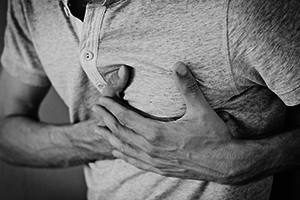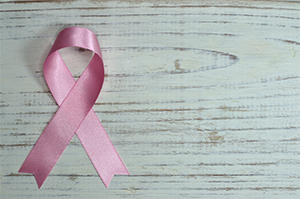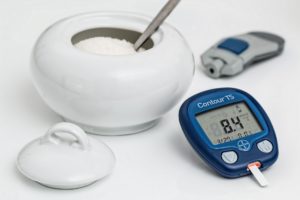
Stopping smoking will also benefit your baby later in life. Children whose parents smoke are more likely to suffer from asthma and other more serious illnesses that may need hospital treatment.
The sooner you stop smoking, the better. But even if you stop in the last few weeks of your pregnancy this will benefit you and your baby.
To find out more about quitting and to get support, you can call us on 0800 246 1072 or 01865 238 036, or click here to find support in your area.

If your partner or anyone else who lives with you smokes, their smoke can affect you and the baby both before and after birth. You may also find it more difficult to stop if someone around you smokes.
Second-hand smoke can also reduce birthweight and increase the risk of cot death. Babies whose parents smoke are more likely to be admitted to hospital for bronchitis and pneumonia during the first year of life. More than 17,000 children under the age of five are admitted to hospital every year because of the effects of second-hand smoke.


Smoking is the main cause of Chronic Obstructive Pulmonary Disease (COPD). COPD is the name for a collection of lung diseases including chronic bronchitis, emphysema and chronic obstructive airways disease. At least 4 out of 5 people who develop the disease are, or have been, smokers. The lining of the airways becomes inflamed and permanently damaged by smoking. This damage cannot be reversed. Around 10-25% of smokers develop COPD.
Please Contact us if you are looking for support.
 Smoking is by far the most important preventable cause of cancer in the world. Smoking accounts for one in four UK cancer deaths, and nearly a fifth of all cancer cases.
Smoking is by far the most important preventable cause of cancer in the world. Smoking accounts for one in four UK cancer deaths, and nearly a fifth of all cancer cases.
Smoking causes more than four in five cases of lung cancer. Lung cancer has one of the lowest survival rates of all cancers, and is the most common cause of cancer death in the UK. Smoking also increases the risk of over a dozen other cancers. The good news is that most of these deaths are preventable, by giving up smoking.
The fact is that half of all smokers eventually die from cancer, or other smoking-related illnesses. A quarter of smokers die in middle age, between 35 and 69.
Tobacco smoke contains more than 70 different cancer causing substances. When you inhale smoke, these chemicals enter your lungs and spread around the rest of your body.
Scientists have shown that these chemicals can damage DNA and change important genes. This causes cancer by making your cells grow and multiply out of control.
Thanks to research, health campaigns and new policies, the number of smokers in the UK has halved in the last 50 years. Because of this, the number of people who die from lung cancer has also halved. Clearly, giving up smoking saves lives
Please Contact us if you are looking for support.

When you go smoke free, your appetite may increase and sense of taste may improve.
The average weight gain after quitting smoking is roughly around 3kg.
This is a normal response to the removal of nicotine from your diet.
Please Contact us if you are looking for support or worried about weight management.



One of the most important things you can do to speed up your recovery is to quit smoking. You may be having surgery in the coming months and now is the time to be thinking about stopping smoking before your operation.
Within the first hour, your blood pressure and pulse will return to normal. After eight hours the level of carbon monoxide in your blood will half and your oxygen levels will return to normal. After 24 hours the carbon monoxide leaves your body and within 48hrs your body is nicotine free. After just a few weeks you will start to notice your food tastes better, your lungs are clearer and you have more energy. Within 12 weeks your circulation is now improved throughout your body.
How long before the Op should you stop?
The sooner you stop before the op the better. Research suggests that stopping one month before surgery can make a great difference to the speed you recover and get back to good health. Ideally you should aim to stop smoking eight weeks before your surgery as this greatly reduces the risk of you developing complications. Smokers have one in three risk of developing post-operative chest infection. This can be reduced to one in ten if you stop eight weeks before your operation. We appreciate it is not always possible to give up in advance of your op especially for those undergoing emergency surgery, however giving up smoking for just a few days can make a big difference to your recovery as carbon monoxide and nicotine are cleared from your body within 48 hours.
Benefits of giving up smoking pre-op
Smokers normally require more anaesthetic than normal. Stopping before your surgery will mean you will require less anaesthetic and this will help speed up your recovery.
Less time spent in the recovery room and less need for oxygen therapy.
There is less likelihood of you developing a chest infection following surgery.
Wounds will heal more quickly. Smoker’s wounds take longer to heal due to the reduced amount of oxygen circulating in the blood and the effect of nicotine on the production of essential healing chemicals.
There is a lower risk of developing dangerous blood clots after surgery.
Less need for pain relief
What help can you get?
You don’t need to do it alone. It can be hard to quit smoking but you are up to four times more likely to quit with help and support from a specialized service. Smokefreelife Berkshire can support you in your quit attempt; we offer:
One to one support sessions over a period of 12 weeks.
A free weekly supply of Nicotine Replacement Therapy (NRT).
A range of community clinic where you can drop in at a time convenient to you.
Please Contact us if you are looking for support.
Many studies show that second-hand smoking and tobacco exposure increases health risks to your pets and has been associated with:

Oral Cancer and Lymphoma in Cats: they lick themselves as part of their grooming and because of this they ingest dangerous carcinogens that are absorbed by their fur

Allergies, Nasal Cancer and Lung Cancer in dogs: long nosed dogs have a greater risk of developing nasal cancer while small/medium nose dogs have a greater risk of developing lung cancer.

Respiratory problems and Lung Cancer in small furry pets and birds.

Fish kept in tanks and aquariums can suffer the effects of second hand smoke as it can introduce toxins into the water in which they live and lead to failure to thrive.

Amphibians and Reptiles are sensitive to airborne toxins. Second-hand smoke from cigars and cigarettes can cause chronic eye, skin, and respiratory disease.

Your pet is more at risk from passive smoking than humans because they spend more time at home, are usually always found close to their owner and are closer to carpets where carcinogenic particles linger.
Smoke lingers on carpets and curtains which makes animals more susceptible to breathing in deadly toxins.
If pet owners choose to smoke outside the effect on their pets; although reduced, is not completely eradicated.
Please Contact us if you are looking for support.
Stopping smoking can make a drastic improvement to your lifestyle and health in ways you might not expect. Once you stop smoking, some of the benefits are immediate and some are longer-term
You will reduce your risk of developing illnesses, disability or death
You will reduce your risk of amputation caused by circulatory problems
You will improve the health those around you and protect your children form secondhand smoke
You will improve your fertility levels and your chance of a healthy pregnancy and baby, whether you are a man or a woman planning to have a baby
You will improve your breathing and lung capacity
Your taste buds will recover
SUCCESS STORIES20 minutes
Blood pressure and pulse rate return to normal.
24 hours
Carbon monoxide will be eliminated from the body. Lungs start to clear out mucus and other smoking debris.
72 hours
Breathing becomes easier. Bronchial tubes begin to relax and energy levels increase.
3 - 9 months
Coughs, weezing and breathing problems improve as lung function increases by up to 10%.
10 years
Risk of lung cancer falls to half that of a smoker. Risk of heart attack falls to the same as one who has never smoked.
8 hours
Nicotine and caron monoxide levels in blood reduce by half, oxygen levels return to normal.
48 hours
There is no nicotine. Ability to smell and taste is greatly improved.
2 - 12 weeks
Your circulation improves.
5 years
Risk of heart attack falls to about half compared to a person who is still smoking.
Answer the two questions below and then click “Calculate” to see how much money you could save!
How much do you pay for a 20 pack of your favourite cigarettes?
How many packets of cigarettes do you smoke each day?
Please note that the figures above are simply an indication of much you could save based on the cost of a pack of cigarettes and your daily intake.